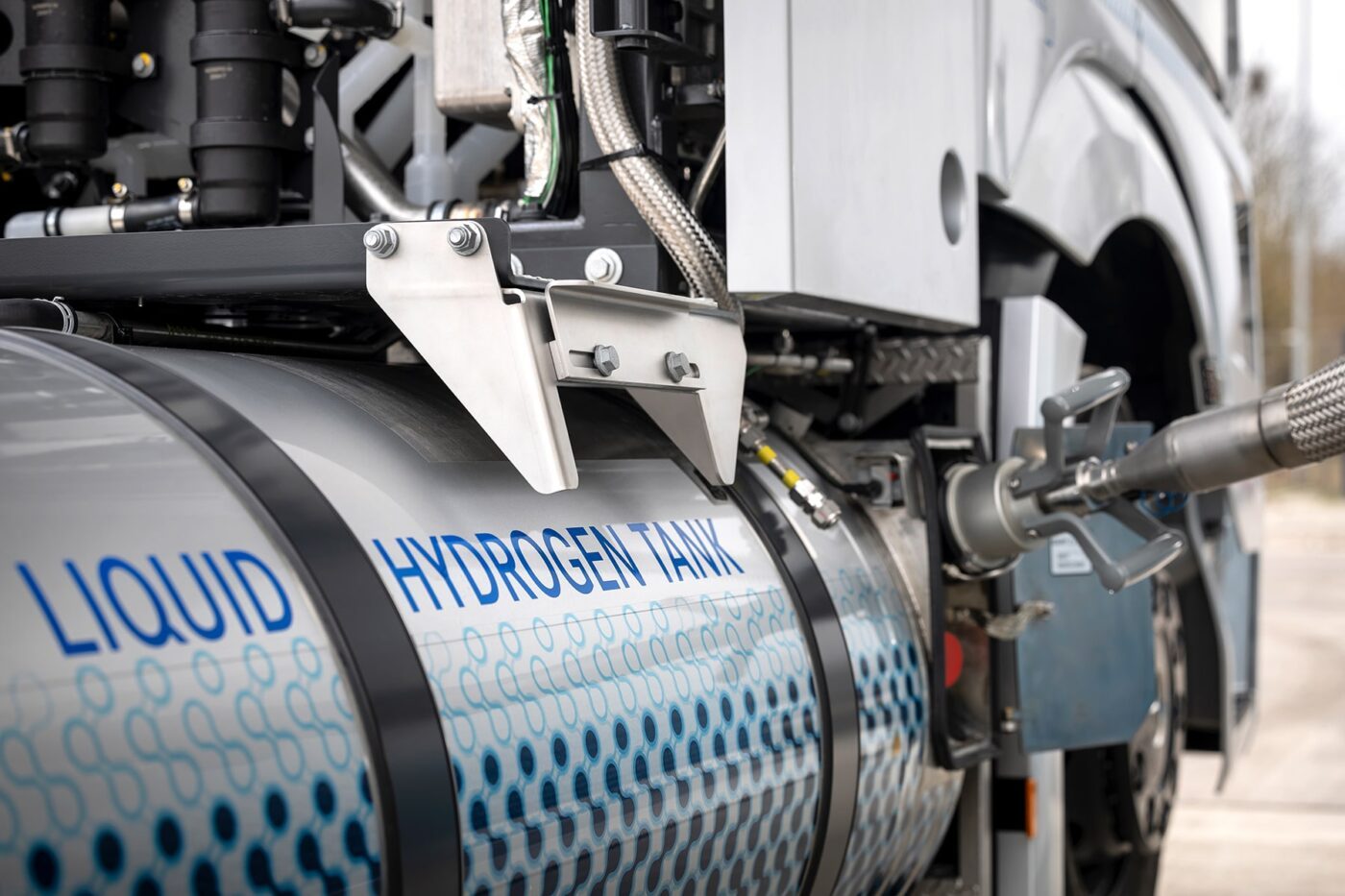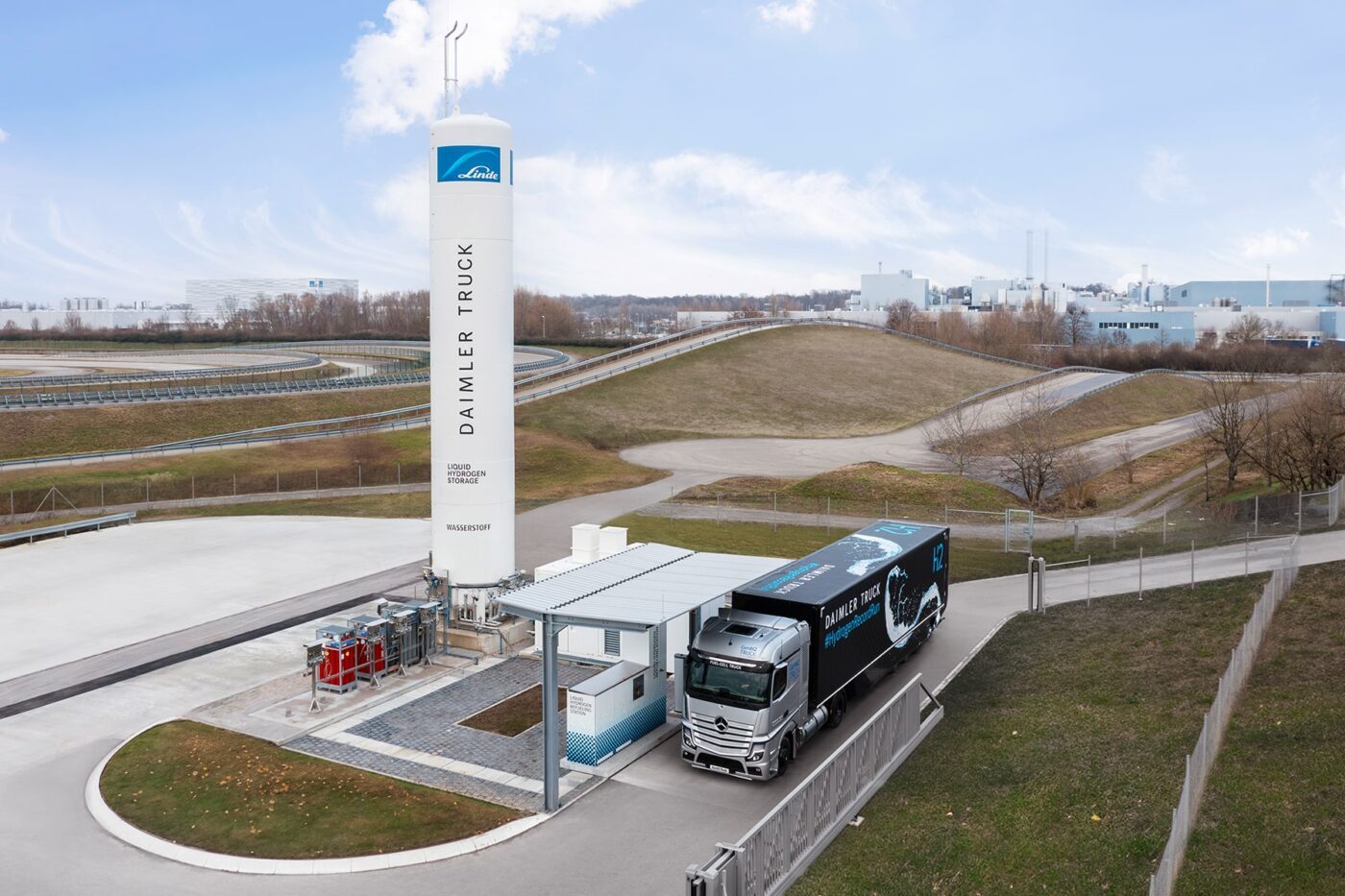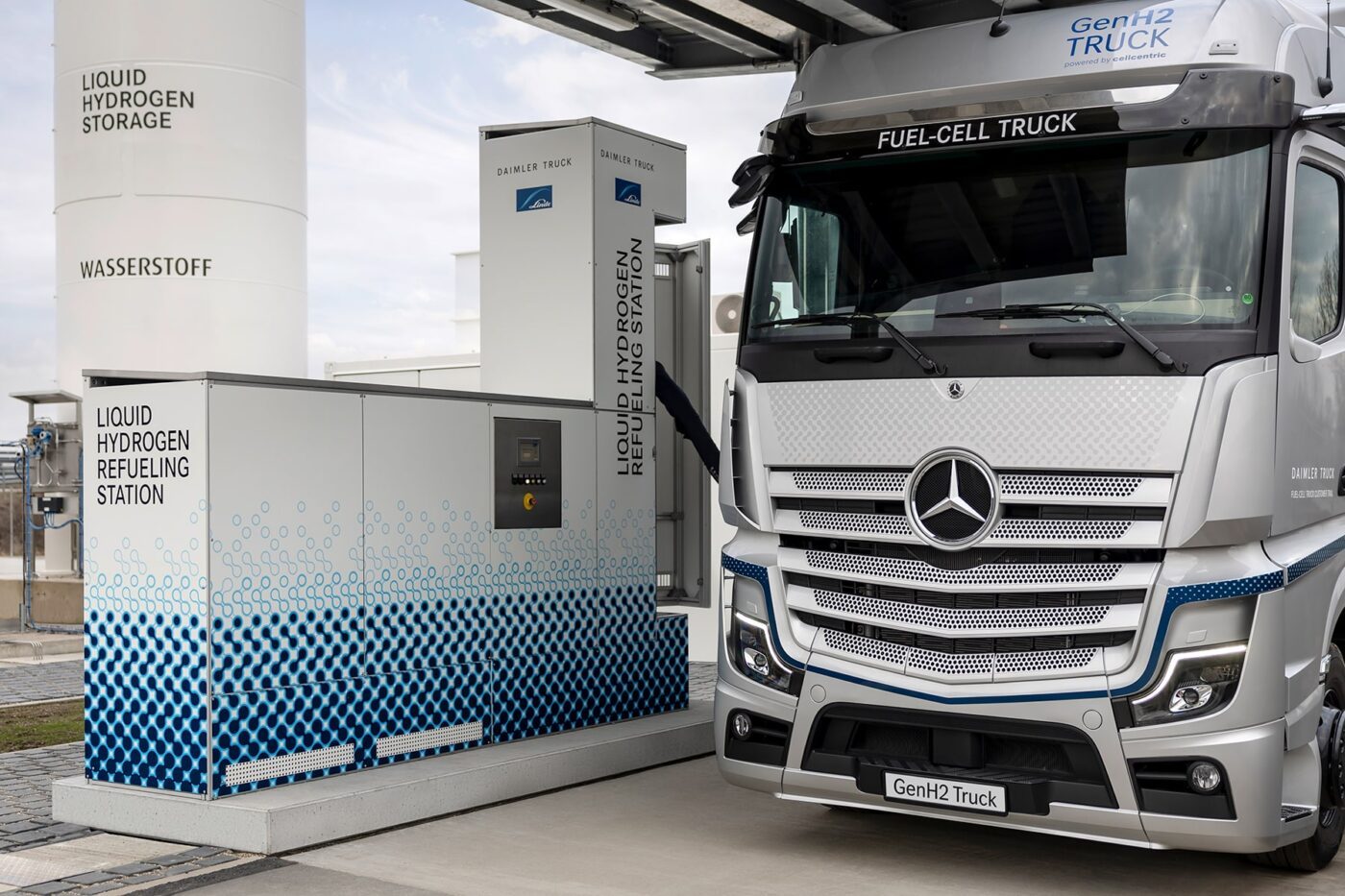Daimler Truck and Linde Engineering have unveiled a groundbreaking advancement in liquid hydrogen refueling technology, presenting their jointly developed sLH2 system. This collaborative effort aims to revolutionize the refueling process for hydrogen-powered trucks, promising enhanced efficiency and convenience.
At the core of this pioneering technology is a new pump, which forms the heart of the sLH2 fueling solution. While this innovation is poised to become a standard feature for hydrogen-powered trucks, both companies stress its potential to transform the landscape of hydrogen refueling.
See also: Daimler Truck introduces a hydrogen-fueled GenH2 truck

In comparison to conventional LH2 refueling methods, the sLH2 process involves using a specialized pump to slightly increase the pressure of the liquid hydrogen, thereby transforming it into subcooled liquid hydrogen. This method is projected to streamline the refueling process, resulting in reduced energy losses and eliminating the need for data transfer between refueling stations and vehicles, thus simplifying operations.
The merits of LH2 and sLH2 over gaseous hydrogen are well-recognized within the industry, with advantages including higher energy density, faster refueling times, lower costs, and increased energy efficiency. The introduction of the sLH2 refueling station at the Daimler Truck plant in Wörth, Germany, marks a significant step towards wider accessibility, with plans to commence customer trials with the Mercedes-Benz GenH2 Truck in mid-2024.
According to Daimler Truck, refueling a 40-tonne truck with 80 kilograms of liquid hydrogen using the sLH2 technology will take “about 10-15 minutes,” highlighting its efficiency and practicality. This is further emphasized by Jürgen Nowicki, Executive Vice President of Linde plc and CEO of Linde Engineering, who sees sLH2 as a practical, CO2-neutral alternative to diesel in the heavy-duty vehicle sector.
See also: Oregon State University and Daimler Partner to Develop Hydrogen Fuel Cell-Powered Heavy-Duty Truck

Critical to the success of this technology is its potential to reduce both investment and operating costs for hydrogen refueling stations, making them more economically viable. Daimler and Linde are committed to standardizing the sLH2 technology through an ISO standard, inviting other stakeholders to participate in establishing a global mass market for liquid hydrogen refueling.
Andreas Gorbach, Daimler Truck Board Member responsible for Truck Technology, underscores the significance of this milestone, stating, “Zero-emission transport needs three factors: the right battery-electric and hydrogen-powered vehicles, the required infrastructure network, and cost parity for ZEVs compared to diesel trucks.”

